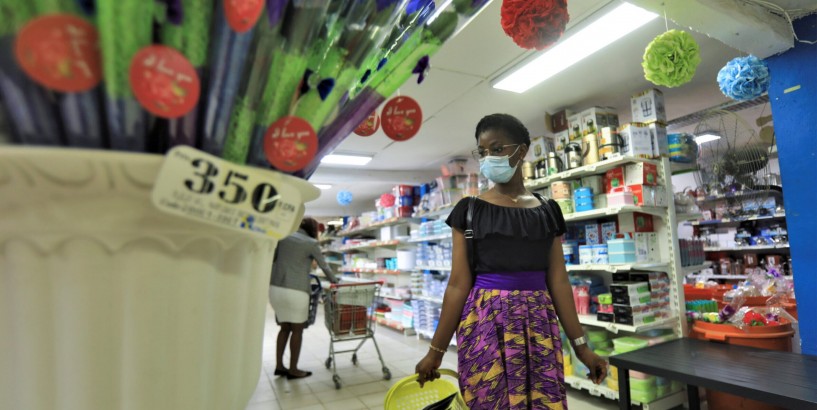The World Bank forecasts the African continent will experience its first recession this century and some report a potential 3% GDP contraction. The impact on jobs will be huge. McKinsey estimates that between 9 million and 18 million formal jobs will be lost across Africa, and 100 million informal jobs (of which women make up 75%) are vulnerable to loss of income.
Development gains undone Many businesses that were booming and families that were thriving just a few weeks ago now face incredibly challenging times. Failure to protect jobs will have major ramifications for the continent’s resilience and long-term sustainable development. This alone risks undoing many of the development gains that have been hard won over the last decade. These issues are compounded by a perfect storm of declining commodity prices and reduced export volumes, as well as depleting foreign exchange reserves and triggering huge capital outflows.
READ MORE Coronavirus: recession in Nigeria likely, despite measures in place
International and local responses to the crisis have mostly focused on immediate and medium-term needs, channelling much-needed support to cash-strapped governments and launching or expanding social safety nets to protect the most vulnerable from the impacts of lengthy lockdowns.
But the economic impacts of this public health crisis will be felt for years to come. So what role can Development Finance Institutions (DFIs) play in protecting the private sector? And where should they focus their efforts?
READ MORE How to manage corruption risk in African infrastructure projects
As committed long-term providers of patient, flexible capital to the private sector, DFIs have a critical contribution to make. The DFI community has mobilised collectively to protect businesses and the estimated 2 million jobs it supports across Africa by channelling additional company-specific liquidity and technical assistance where they are most needed. There are many parallels between the challenges we face today and those we faced in the aftermath of the 2008 financial crisis, when DFIs acted decisively to provide significant counter-cyclical financing to support the continent’s financial systems and boost lending to the private sector.
DFI investment on the continent “doubly important” As international sources of commercial capital dry up and global investors pull back, the commitment of DFIs to continue investing on the continent – both directly and by allocating capital to Africa-focused funds – becomes doubly important. But the true measure of long-term success will be how much international private capital we can mobilise to help return Africa to steady growth.
READ MORE Algeria to end 51/49 rule: Doors open to foreign investment?
European DFIs already have some €15 billion invested in Africa, with many more billions invested by the IFC and North American DFIs. Significant volumes of private capital, however, are required to support the post-COVID-19 recovery, close Africa’s financing gap and accelerate progress towards the UN’s Sustainable Development Goals.
The banking sector is perhaps the most important area where DFIs can intervene by providing systemic liquidity support to help financial institutions maintain or increase current lending levels to their business clients. As key drivers of growth – and those most affected by lockdowns – it is vital that SMEs can secure adequate support to shield them from the downturn. Access to trade finance remains another persistent challenge for local companies, particularly during financial crises. Building on their existing trade finance relationships, DFIs should continue injecting liquidity to support SMEs and basic needs industries.
The article continues below
Likewise, many African financial institutions will need additional liquidity as loan moratoriums are implemented and their ability to raise capital from wholesale markets becomes more limited. By reinforcing partnerships with local banks and financial intermediaries to strengthen financial systems, DFIs can quickly reach the real economy and achieve transformative impact at scale.
Beyond immediate liquidity support – including in hard currencies where shortages arise – some players in Africa’s banking sector, particularly non-banking financial and microfinance institutions serving hundreds of millions of people across Africa, are likely to face solvency challenges in the medium- to long-term. DFIs are uniquely placed to strengthen these vital institutions by supporting their financing needs.
Bottom line: While Africa has so far been relatively spared from a health perspective, managing the economic fallout from COVID-19 is one of the most important development challenges we will witness in our lifetime.
It’s clear the continent’s private sector needs urgent support. Strengthening the resilience and capacity of the African financial sector is by no means a panacea for protecting business and jobs, but it should ensure support is swiftly directed to where it is needed most.
By preserving and strengthening the continent’s financial institutions today and investing for the long-term – as CDC has done for over 70 years – we can help rebuild more resilient and sustainable economies in the months and years to come.









